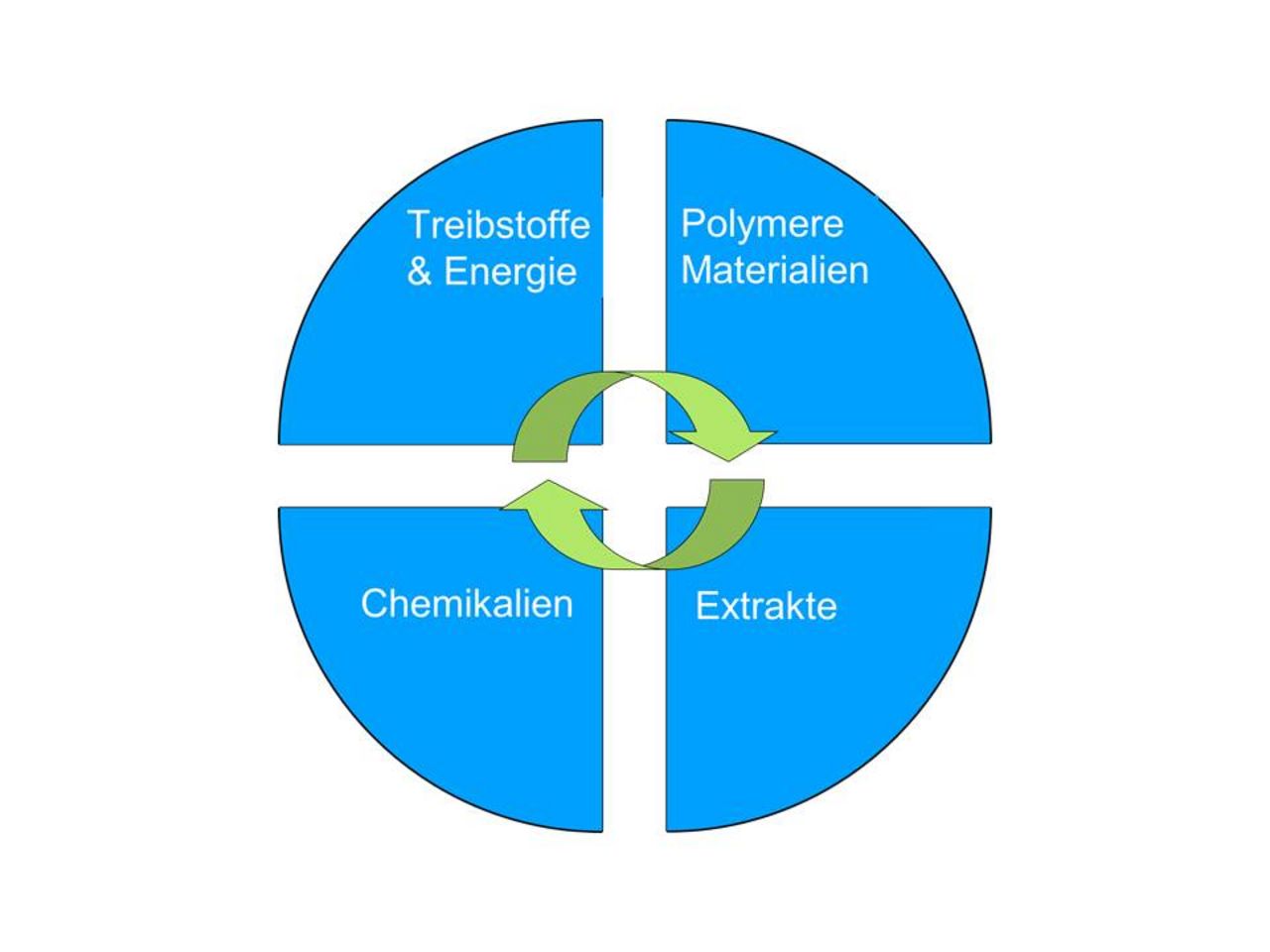Project
Sustainability assessment of bio-based systems

Sustainability assessment of renewables production and conversion
A successful transition to a bio-economy depends on a number of technological, economic, environmental and social factors. Each step needed to be assessed with respect to sustainability goals in order to frame that transition efficiently.
Background and Objective
Sustainability assessment of the production and conversion of reneables is a cross-sectional task within the Institute of Agricultural Technology and is geared to advise the Federal Ministry of Food and Agriculture in sustainability issues connected to agricultural biomass and residues.
Target Group
Political decision makers
Approach
The task encompasses:
- Deepening the LCA methodology for biobased systems
- Eco-efficiency analysis of biomass conversion processes
- Sustainability assessment of biobased system
Thünen-Contact

Duration
Permanent task 9.2009 - 12.2025
Publications on the project
- 0
Diaz-Chavez R, Stichnothe H, Johnson K (2016) Sustainability considerations to the future bioeconomy. In: Lamers P, Searcy E, Hess JR, Stichnothe H (eds) Developing the global bioeconomy : technical, market, and environmental lessons from bioenergy. Amsterdam; Boston; Heidelberg: Elsevier, pp 69-90
- 1
Stichnothe H, Schuchardt F, Rahutomo S (2014) European renewable energy directive: Critical analysis of important default values and methods for calculating greenhouse gas (GHG) emissions of palm oil biodiesel. Int J Life Cycle Assessment 19(6):1294-1304, doi:10.1007/s11367-014-0738-x
- 2
Luo Y, Stichnothe H, Schuchardt F, Li GX, Mendoza Huaitalla R, Xu W (2014) Life cycle assessment of manure management and nutrient recycling from a Chinese pig farm. Waste Manag Res 32(1):4-12, DOI:10.1177/0734242X13512715
- 3
Stichnothe H (2014) Nachhaltige Biomassebereitstellung : Entwicklung eines Meta-Standards für die Bewertung der Rohstoffbereitstellung für die stoffliche Biomassenutzung. Forschung Themenheft 2/2014:32-37
- 4
Osterburg B, Rüter S, Freibauer A, Witte T de, Elsasser P, Kätsch S, Leischner B, Paulsen HM, Rock J, Röder N, Sanders J, Schweinle J, Steuk J, Stichnothe H, Stümer W, Welling J, Wolff A (2013) Handlungsoptionen für den Klimaschutz in der deutschen Agrar- und Forstwirtschaft. Braunschweig: Johann Heinrich von Thünen-Institut, 158 p, Thünen Rep 11, DOI:10.3220/REP_11_2013
- 5
Amienyo D, Gujba H, Stichnothe H, Azapagic A (2013) Life cycle environmental impacts of carbonated soft drinks. Int J Life Cycle Assessment 18(1):77-92, doi:10.1007/s11367-012-0459-y
- 6
Fröhling M, Fritsche U, Gerlach J, Gröngröft A, Günther A, Günther J, Kamm B, Klenk I, Laure S, Meyer J-C, Schweinle J, Stichnothe H, Strohm K, Trippe F, Peters D, Wagemann K (2012) Economic and ecological assessment of biorefineries – findings of the German Biorefineries Roadmap Process, Nordic Wood Biorefinery Congress (NWRC) Helsinki October 24th.
- 7
Milà i Canals L, Azapagic A, Doka G, Jefferies D, King H, Mutel C, Nemecek T, Roches A, Sim S, Stichnothe H, Thoma G, Williams A (2011) Approaches for addressing life cycle assessment data gaps for bio-based products. J Ind Ecol 15(5):707-725, DOI:10.1111/j.1530-9290.2011.00369.x
- 8
Stichnothe H, Schuchardt F (2011) Life cycle assessment of two palm oil production systems. Biomass Bioenergy 35(9):3976-3984, DOI:10.1016/j.biombioe.2011.06.001
- 9
Azapagic A, Stichnothe H (2011) Life cycle sustainability assessment of biofuels. Woodhead Publ Ser Energy 15:37-59
- 10
Azapagic A, Stichnothe H (2011) Sustainability assessment of biofuels. In: Azapagic A, Perdan S (eds) Sustainable development in practice : case studies for engineers and scientists. 2nd ed. Ames, Iowa: Wiley-Blackwell, pp 142-169
- 11
Espinoza-Orias N, Stichnothe H, Azapagic A (2011) The carbon footprint of bread. Int J Life Cycle Assessment 16(4):351-365, doi:10.1007/s11367-011-0271-0
- 12
Stichnothe H, Schuchardt F (2010) Comparison of different treatment options for palm oil production waste on a life cycle basis. Int J Life Cycle Assessment 15(9):907-915, doi:10.1007/s11367-010-0223-0

![[Translate to English:] [Translate to English:]](/media/_processed_/3/6/csm_Hintergrund-Ausschnitt1_9daaef6b89.jpeg)
![[Translate to English:] [Translate to English:]](/media/_processed_/3/6/csm_Hintergrund-Ausschnitt1_0bd7111163.jpeg)
![[Translate to English:] Logo des Bundesministerium für Ernährung und Landwirtschaft](/media/allgemein/logos/BMEL_Logo.svg)